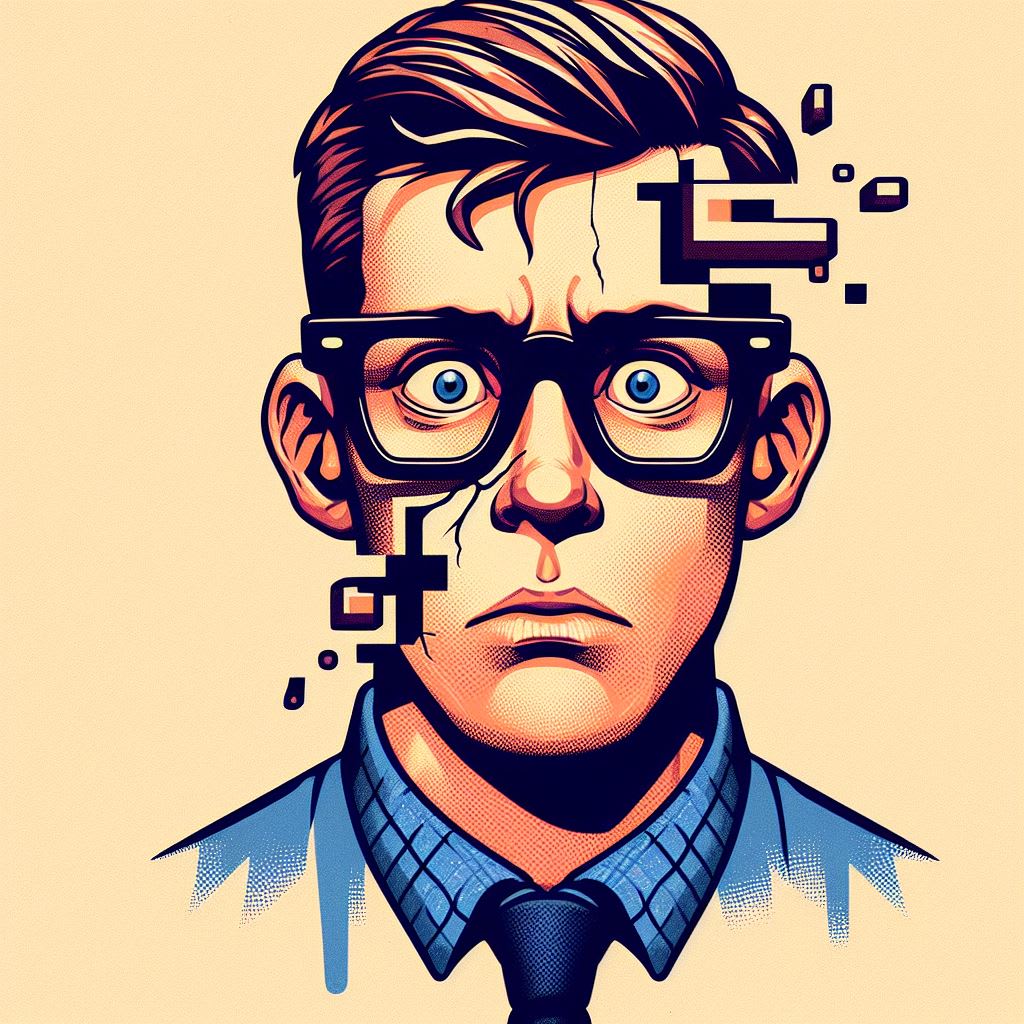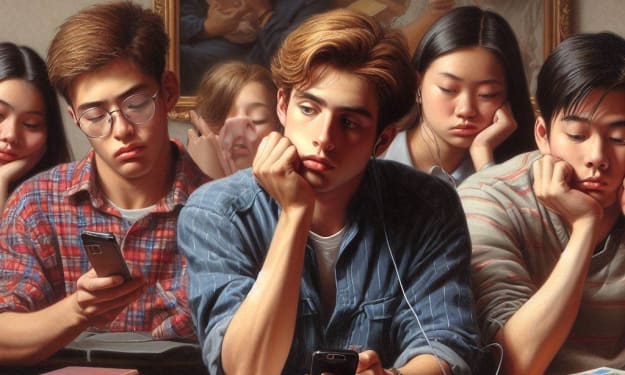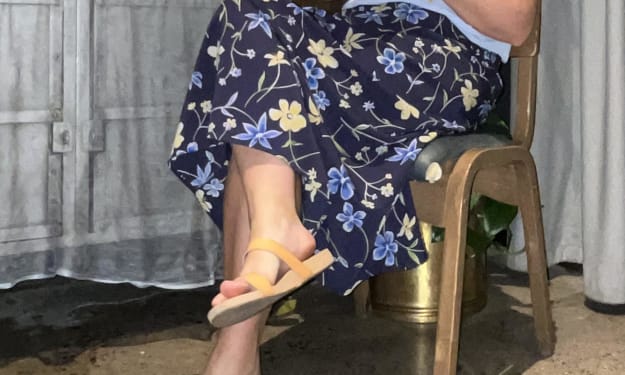Behold the Nerd
Meditations on Identity, Resentment and Obstinate Oddity

Let us suppose that identity is a matter of self-sameness, i.e., being who you appear to be. Given this definition, there are a few reasons why I resent the radical instability of my identity. Firstly, the fact that I am suffering from the effects of Multiple Sclerosis, which was diagnosed fifteen months ago, has changed how other humans comport themselves with respect—or the lack thereof—to me. This is especially obvious with regard to my employer, my boss (the two are distinct in the academic realm, which has interesting implications), my colleagues and my students. My handwriting has never been especially beautiful, but now it is often entirely unintelligible. My gait is odd. Perpetual tinnitus, a consequence of my first “flare,” makes me seem irritable and distracted. It will only get worse from here. I feel as though my internal reality is largely unchanged, but my external reality has been sliding toward insufferable. That, I resent.
Secondly, I resent that the sort of experience I routinely had at work, prior to the pandemic, seems to be gone for good. It used to be possible to count on many humans to read what they vowed to read and come to class prepared to have a lively, and often challenging, conversation about it. That experience is as rare as a genius at a Trump rally now. It happens, but one is always a bit incredulous when it does. It doesn’t seem normal, while we are all scrambling to pretend that it is. Failures of memory and imagination abound. It is another sign of the steadily expanding realm in which I cannot be myself. I must be the sort of instructor they want, as opposed to the sort of instructor I am. My identity is the sum of who I am and who I appear to be. I must comport myself inauthentically. While I work. Simply to survive. That, I resent.
Thirdly, I do not know how long I can keep this up. I used to be driven by quixotic idealism. I thought what I was doing had real meaning, and that therefore I could tolerate precarity and all that it entails. The pandemic pulverized all of that. People quit their jobs en masse as a result. “If this is all this means, I cannot justify doing it any longer, even if that is a threat to my survival,” they shouted, in various languages. We will be living with the consequences for many years. Indeed, the worst of the phenomenon itself is rumored to be over, but its echoes in cultural and existential terms will get louder in the proximal future. Reality as it stands is unsatisfactory for too many humans. That lava of resentment has erupted in various ways, and it will continue to do so until we get our act together. That, I resent.
However, I have been convinced that resentment is deleterious to the spiritual health of the individual who succumbs to it: "Resentment, born of weakness, harms no one more than the weak person himself"(Nietzsche 22). Nietzsche was seldom wrong about these things. He must have been an expert in the domain of resentment in order, finally, to figure out how to overcome it. So, I am striving to overcome it by being precisely who I am, even if that doesn’t fit very well with the current state of the world. I think that may be dismissed as madness or folly. I do not resent that. Most good ideas elicit that response, at first. If things don’t change, eventually, I’ll have no choice: I’ll have to adapt to survive. Who I will be at that point, I shudder to think.
If you are often obliged to appear to be someone you do not especially like or respect, simply in order to survive, I feel genuine compassion for you: our distress is similar, even if the particular causes and consequences of that distress are not identical. I can also imagine what it must be like to be you, in the sense that your situation is unsatisfactory, like mine. The details surely differ, and they are worthy of respect. But we are mad for empathy, so there you have it. I ought to be able to say yes to existence more often. That goes for you, too.
Works Cited
Nietzsche, Friedrich. ECCE HOMO (Nietzsche’s Autobiography). Translated by Anthony M. Ludovici. In The Complete Works of Friedrich Nietzsche. The First Complete and Authorised English Translation. Edited by Dr. Oscar Levy, Volume Seventeen. Edinburgh and London, UK: T.N. Foulis, 1911.
About the Creator
D. J. Reddall
I write because my time is limited and my imagination is not.
Enjoyed the story? Support the Creator.
Subscribe for free to receive all their stories in your feed. You could also pledge your support or give them a one-off tip, letting them know you appreciate their work.






Comments (5)
Sounds like you're dealing with a lot. I'm getting older too with aches and pains I didn't have a decade ago. We just got to live each day to the maximum and make our mark on the world in anyway we can.
Luv ❤️❤️💛
Potent writing, about difficult things.
D.J., this is very interesting. Firstly, I hope you are coming to terms and managing your diagnosis. That must be hard in many ways. Secondly, I think you're right about the repercussions of the pandemic being felt into the future. The fact that switching off and ducking out because you were only on a screen means that accountability, responsibility, duty whatever you want to call it has been made secondary to doing whatever you feel is best and this is fine must have a knock-on effect. I don't know where the balance is in anything anymore. You have to be one thing or the other - judgement does not apply. It must be frustrating for you on so many levels to not have the engagement you've been used to with no real explanation why not. I wouldn't feel resentful. Is it something you can change? In small increments and localised maybe but that will depend on cooperation of others who have already shown their apathy. It's good to vent - hope you found expressing it cathartic.
Thank you for sharing your thoughts and experiences so candidly. It invites reflection and understanding, fostering a sense of connection with the universal aspects of the human condition.